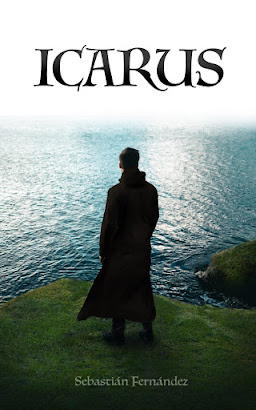Ender's Game - One Of My Favorite Books
"The Earth is threatened by an extraterrestrial species of insects that aims to destroy humanity. To defeat them requires the intervention of a military genius, which is why the birth of Ender, the third child of a couple in a world that limits the number of descendants to two, is allowed. Ender will train on a space station, overcome his rivals and become the person capable of directing land fleets against insects from other worlds."

I was 13 when my parents bought me Ender's Game. Although I began reading it immediately, for some reason I stopped and ignored it until last year when I found it among my other books. What inspired me to restart reading the book was that I had recently watched the movie, and I loved it! Also, I have an assumption that proves true in 99 percent of the cases: if a movie based on a book is enjoyable, the book will be better. Ender's Game was not the exception and it rapidly became one of my favorite books.
To begin with, the story is very well divided into 15 chapters, each one of them aboard a different situation with our main character, Ender Wiggin. Although the book is narrated in the third person and is focused on Ender only, there are small conversations at the beginning of each chapter, conversations delivered by people that observe Ender. This detail is remarkably useful to give us more insight into the obstacles our protagonist is facing and how he's managing everything.
Now, let's analyze the characters and the situation that's lived in the book. Ender is very young at the beginning of the story - and I say at the beginning because there are time jumps throughout the story - and it is stated that he's also smarter than the average kid. Besides, Ender feels the responsibility to achieve something great because he's a third child, something that is prohibited in the story's society due to overpopulation. Because Ender is smarter than the average kid, we will notice two incidents happening to him, things that also happen in real life: on one side, he's constantly pushed by adults to not only be better than others but to be THE best. On the other hand, Ender's bullied by other children for the same reason. Translating both circumstances to our reality: aren't smart children often pressed by their parents and teachers to be better than their classmates? Aren't these same children bullied out of envy by their less intelligent acquaintances? Orson Scott Card, the book's author, steadily addresses such problems and their effects on Ender.
Another interesting topic that the novel approaches is war. Only that now, children are trained as soldiers. We can see how people in charge act when driven by paranoia that the enemy may attack at any moment, even though the war is already over, and what kids think about war. Since the enemies here are not human, but aliens, Scott Card makes readers question how different from us are really these enemies and who is the real monster. When reading, we see a society that has never asked such questions, that never thought about the perspective of the other side. After all, isn't that how all wars start?
The vocabulary of the book is fairly easy to understand, and you'll find the novel really engaging. A positive remark I must make is that the author does an incredible job when explaining the Ender's world, which is often difficult in science fiction novels. Something worth mentioning is that this book is the first of a series. Do you need to read all the books to have closure? No, even though the story ends with a tiny cliffhanger the story feels concluded.
Finally, Ender's Game focuses on profound themes and is still easy to understand, becoming an exciting action and adventure novel that is accurately defined as one of the best science fiction novels.
As I said at the beginning, there is a movie adaptation of this book starred by Asa Butterfield as Ender alongside Harrison Ford and Ben Kingsley. The film is mostly accurate to the novel since Orson Scott Card himself collaborated with the script.
Score: 4.5/5
Favorite Quotes (yes, there's one extra this time):
- "So the whole war is because we can’t talk to each other."
- "In the moment when I truly understand my enemy, understand him well enough to defeat him, then in that very moment I also love him. I think it’s impossible to really understand somebody, what they want, what they believe, and not love them the way they love themselves."

Comments
Post a Comment